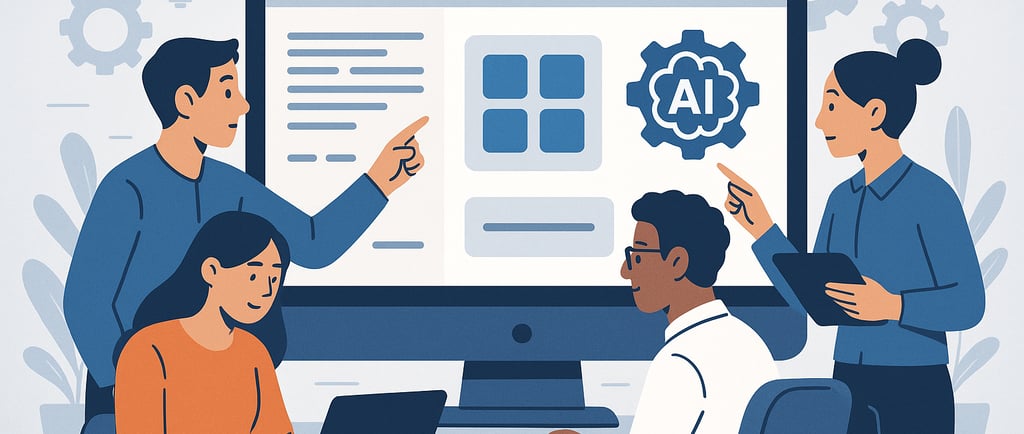AI in Product Development: What 6 Late-Stage Companies Are Actually Seeing
There is a lot of buzz about AI, but where are companies really at in terms of adopting AI and seeing demonstrable results? I recently facilitated peer-to-peer discussions with six late stage private companies to find out. Here's a summary of their progress and results to date.
BLOG POST
6/26/20252 min read


AI in Product Development: What 6 Late-Stage Companies Are Actually Seeing
I recently facilitated peer-to-peer discussions between six companies where I serve as Product Advisor, all late-stage private companies with $50M-$750M ARR. The goal: share real progress and results from AI adoption across product development.
Here's what they're experiencing, organized by use case—along with where the promise is meeting reality.
Development: High Adoption, Mixed Results
The Numbers: All companies deployed coding assistants (primarily Cursor and GitHub Copilot) to 75%+ of developers. Yet only one company sees measurable productivity gains in organization-wide metrics like pull request rate or bug fix velocity.
The Reality Check: AI code acceptance rates hover around 50%. The time saved generating code appears offset by additional review and revision time for rejected suggestions.
Where It's Working:
Onboarding acceleration: New developers get up to speed faster by querying the codebase directly
Cross-team enablement: Support and Customer Success teams self-serve product questions without engineering time (tools: Glean, Unblocked)
Greenfield projects: Net new development shows stronger AI impact than complex existing codebases
Legacy maintenance: Bug fixes, compatibility updates, and unfamiliar language syntax get meaningful boosts
Testing workflows: Generating test data, mocks, and triaging nightly test failures
The Adoption Challenge: Effective AI coding feels unintuitive and requires practice. Developer resistance remains common, and most companies haven't yet implemented formal enablement programs. One creative approach: "AI Day" where developers must use AI tools for all code generation.
Product Research: Broad Experimentation
Companies are actively exploring AI across research workflows using ChatGPT, Gemini, and Claude:
Research acceleration (6 companies): Use LLMs for market, technology, and competitive research via Deep Research features
Support pattern recognition (3 companies): Feed support tickets to LLMs to identify prioritization patterns
PRD creation (2 companies): Product leaders reported improved writing quality and faster iteration cycles
Interview synthesis (1 company): Converting user interview transcripts into actionable insights
Competitive intelligence (1 company): Using V0 to rapidly prototype competitor features for differentiation analysis
Customer intelligence (1 company): Built MCP-connected agents that pull relevant Jira tickets by customer and aggregate field feedback by project
Automated analysis (1 company): Deployed an agent that scans product analytics, Confluence, and Jira hourly for trends—essentially automated product analyst work
Product Prototyping: Replacing Traditional Processes
Multiple companies experiment with V0, Lovable, Replit, and Bolt for rapid prototyping. One company completely abandoned PRDs in favor of V0 prototypes for idea validation and design communication.
Beyond Product Development
AI adoption extends across operations:
Support efficiency: Pre-drafting responses with customer context, moving tickets from "create" to "edit" mode
Documentation: Faster authoring and improved quality
Meeting productivity: Auto-summarization and action item capture (Granola, Gemini)
G&A automation: Custom tools for expense tagging and deal approval workflows
Security compliance: Accelerated security questionnaire responses
Presentation prep: Slide creation assistance
The Bottom Line
Commitment to AI adoption is nearly universal among late-stage tech companies, but demonstrable improvements in overall product development velocity remain elusive. However, specific use cases show clear promise—and as tools mature and enablement practices standardize, broader efficiency gains seem inevitable.
The companies seeing the most success aren't just deploying tools; they're thoughtfully identifying where AI amplifies existing strengths and systematically addressing adoption barriers.
